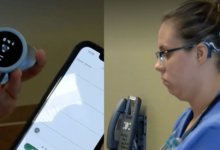Continuing Education in Healthcare | What Are CEUs & Who Needs Them

Continuing education credits are often mandatory in the healthcare profession and an import way to keep current with ever-changing techniques, procedures, and approaches to healthcare situations. Continuing education credits are not just bound to the healthcare industry alone, and can be in almost any profession. Human resources, accountants, and even truck drivers have to go through rigorous continuing education classes to keep current and that is why they are so important.
The confusing part of continuing education credits is that it is different per state and per position.
Doctors have to complete the 12 required hours by their second license renewal date or within four years, whichever is applicable. The 12 required hours will also count toward the 50 hours of approved CME (Continuing Medical Education) doctors are required to complete during each biennial renewal cycle.
Nurses Face a similar Elaborate Continuing Education
In order to maintain their licenses, registered nurses (RNs) and licensed practical nurses (LPNs) need to submit documentation showing at least 531 hours of practice and 45 clock hours of continuing education every three years. Your first renewal cycle begins on the day of your first birthday following licensure. And again this is different per state and even hospital system. The huge upside to exposing your future education to other areas of practice can have huge payoffs by diversifying your personal performance portfolio.
Continuing Education Leads to Higher Pay
It is not unusual for a new position to come with a higher starting salary due to continuing education. Whether you receive a raise or promotion at your current job or qualify for a new job with a higher salary, continuing education will greatly increase your earnings potential.
Requirements for Pharmacists in California
California requires pharmacists to complete continuing education (CE) every two years in the amount of 30 hours (1.25 hours per month). CE regulations can be found in sections 4231 of the Business and Professions Code and in section 1732 of the California Code of Regulations. Again, these regulations are set by state and federal laws and can change dramatically depending on where you want to work. It is best to do your homework when thinking of taking on hours of your time and sometimes paying out of pocket for the classes and learning materials.
Exceptions, License Renewals, and Extenuating Circumstances
Depending on the state, line of work, and seniority you already have, there are some incidences where employees can apply for exemptions, continuing credit forgiveness, and even take CE classes outside the normal curriculums. When a CE course is not accredited or approved by ACPE or PFC, you may request CE credit from the board by submitting a “Petition for Continuing Education Credit from an Unrecognized Provider” or hardship form. A copy of the brochure or advertisement as well as the course outline are usually submitted to demonstrate the credentials of the CE course.
Allied Workers Face a Similar Learning Experience
Another very important area of healthcare is the allied health workers. Without them, healthcare facilities would not even be able to function. It is very indispensable for allied health workers to be on top of all of their continuing education. Policies, insurances, environmental controls, and basic function of health facilities are always changing and so is the education to keep everyone up to date in order to work as efficiently as a team as possible. It’s worth noting that five organizations accredit the CDC to offer nine types of Continuing Education (CE) for health professionals in the United States and all around the world. All educational activities are free of charge, including credits, continuing education units (CEUs), and contact hours.
Professions Covered by CDC CE:
- Physicians
- Physician Assistants
- Pharmacists
- Nurses
- All Health Professionals
- Certified Health Education Specialists (CHES®)
- Master Certified Health Education Specialists (MCHES®)
- Certified Public Health Professionals (CPH)
- Veterinarians
New App. Helping Nurses, LPN, CNA find higher Per Diem Pay
NursaTM has been helping nurses, LPNs, CNAs, and allied workers connect with healthcare facilities for often higher paying PRN jobs in many cities all over the country. Many of our other blogs will give a glimpse on what prices are median, things to see and do in the city while you’re there, and useful information on using NursaTM while in the city and surrounding areas. All you have to do is download the app for either android or apple from the app stores and start applying for your dream jobs. Work when you want and where you want.







